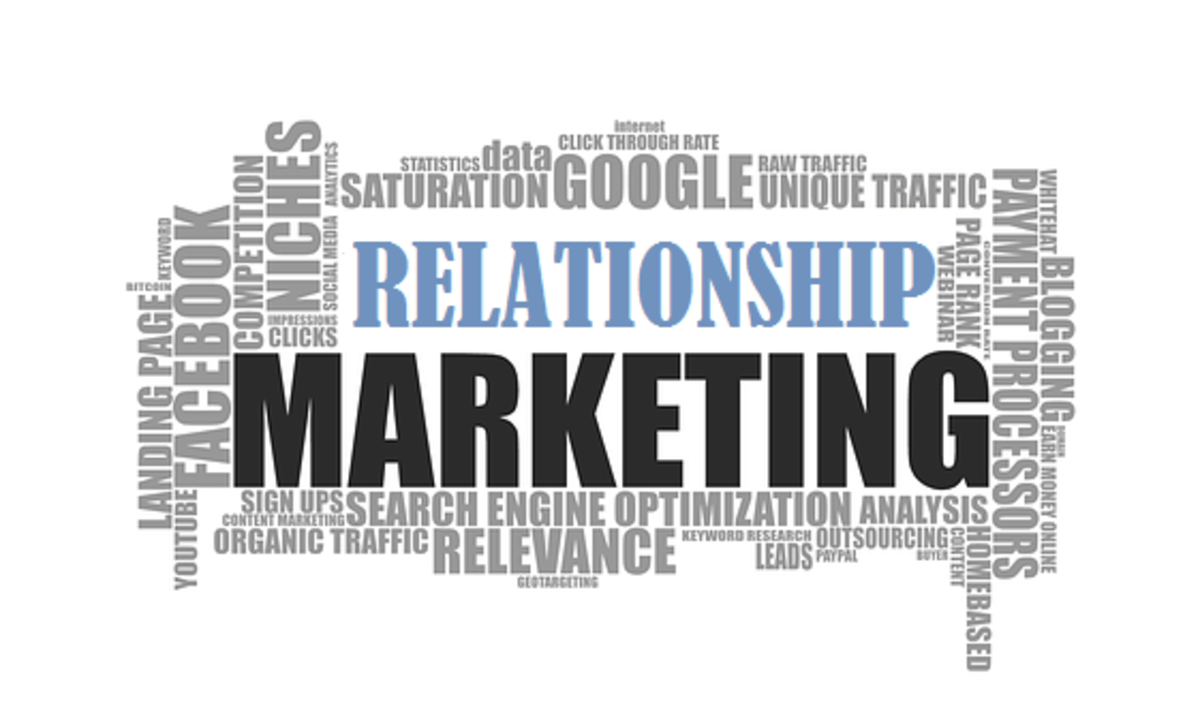Are You Involved in Any One-Way Shopping Relationships?
Merchants are using relationship marketing tactics to retain their customers, and encourage them to spend more money. There are times where these tactics result in win-win relationships between merchants and their customers. Unfortunately, there are other times where these tactics result in one-way relationships where only the merchant benefits. Are you in any one-way shopping relationships where you love your merchant more than they love you?
To understand if you’re in a mutually-beneficial shopping relationship or one which may be ruining your financial life, its necessary to understand what relationship marketing is, and how merchants use it to retain customers. It’s instructive to review some examples of relationship marketing tactics that might be more beneficial to your merchant than to you. These examples can help you to review your shopping relationships to see if they are in your best interest.
Per Wikipedia, relationship marketing refers to “a form of marketing which emphasizes customer retention and satisfaction, rather than a dominant focus on point-of-sale transactions.” Merchants practicing relationship marketing often use relationship management software to track and analyze their customers’ individual purchases, tastes, preferences, likes, dislikes, complaints, etc. They use the results of this analysis to provide personalized offers and services that are more likely to be attractive to their customers, which often results in improved retention and increased sales. In some situations, the use of relationship marketing is beneficial to the customer because it helps the customer find other goods or services that he likes, or provides a discount on further purchases. But in other situations, the relationship marketing leads the customer to buy additional goods or services that the customers doesn’t need, or at prices that are higher than the customer would have otherwise paid.
Merchants also use relationship marketing tactics to make it more difficult or inconvenient for their existing customers to switch to other providers. Ways in which merchants build barriers for their customers to switch to other providers include loyalty programs, product bundling, cross selling, cross promotions, increased termination costs, and compatibility issues.
Loyalty programs provide cash or other rewards to repeat customers. Examples include airline frequent flyer programs, hotel frequent stay programs, and grocery store card programs that provide merchandise discounts or gas “points”.
Product bundling is where a merchant combines several products or services into a “bundle” sold for one price. Examples include cable television / internet service/ phone service bundles sold by telecom providers, and natural gas / gas delivery bundles sold by utility companies.
Cross selling is where a merchant sells related goods or services to an existing customer. An example is where a vet cross sells flea-and-tick treatments to his customers.
Cross promotions are where a merchant gives a discount or other incentives to customers who have bought related products. An example is where a clothing store gives you a 50% discount on a shirt if you buy the matching slacks.
Increased termination costs include where the merchant charges you a termination fee to end the existing relationship, such as where a cell phone company charges a hefty termination fee for breaking a two-year service contract.
Finally, compatibility issues occur where the purchase of a certain product or service locks you into purchasing other products from the same merchant since only they are compatible. For example, printer manufacturers often sell their printers at cost, but make their profits by selling ink cartridges for their printers because only their cartridges are compatible with their printers.
In deciding if your shopping relationships are ruining your financial life, take your emotions out of your transactions and view the relationships from a strictly analytical viewpoint. Does the relationship provide you with an added benefit you would not have without the relationship? If the answer is “no”, you should terminate the relationship and avoid enriching the merchant. After all, merchants do not use relationship marketing because they value their interpersonal relationship with you. They use it as a way to increase their sales and improve their profits.
Here are a few common relationship marketing tactics, and ways to combat them. When you analyze your ongoing relationships with merchants, keep emotions in check and evaluate the relationship strictly on its objective costs and benefits. Otherwise, you’ll end up in a one-way relationship in which you’re doing all the giving and the merchant is doing all the taking.
Airline Frequent Flyer Programs
Airlines have mastered the relationship-marketing game due to their frequent flyer programs. Airline customers belonging to a frequent flyer program typically receive mileage points based on the distance they fly with the airline, although most programs also allow their members to earn points from other purchases such as car rentals, hotels, etc. Once a customer amasses sufficient miles, he can trade them for a free or discounted flight. For many customers, miles are valuable rewards since they can be used to get something of value for free (airline tickets).
However, many customers are abused by their frequent-flyer relationships since they end up paying more (sometimes much more!) for a flight than they would have paid to another airline, or they are willing to accept a less convenient flight. It is common, for example, for people to search for fares only on the airline where they are a frequent flyer in hopes of eventually earning a frequent flyer ticket even though they are ignoring other airlines who might have lower-priced or more convenient fares. Ways to avoid turning your membership in an airline frequent flyer program into a one-way relationship include joining the frequent flyer programs of several different airlines so you can buy each of your tickets with the airline that offers the best flight at the best price, or assigning a monetary value to the frequent flyer miles (e.g., 1 cent per mile) and then determining if the value of the frequent flyer miles you would receive for buying a ticket on a particular flight would outweigh any added costs or inconvenience.
“Free” Email Accounts with Internet Service Providers
Internet service providers (ISPs) often provide “free” email accounts to their customers. In reality, ISPs provide these email accounts to create effective barriers to prevent customers from switching to other providers due to the inconvenience of switching their email address. For example, if you have an email account with the address MyName@MyProvider.com, you would be discouraged from switching to a new provider since you would then need to update your email address with all of your friends, relatives, co-workers, on-line shopping sites, etc. For many people, this would require hundreds of updates. To avoid being tethered to a particular email provider, set up an email account that’s independent of your ISP. You can, for example, easily set up free email accounts with Google (e.g., MyName@gmail.com) or Yahoo (e.g.., MyName@yahoo.com). You will then be free to switch to another ISP without worrying about the need to update all of your contacts.
Computer Printers
Many computer printer manufacturers sell their printers at cost, but make enormous profits by selling ink cartridges to their customers. Typically, the manufacturers embed hardware and software features into their equipment to make it impossible to buy ink cartridges from another source. As a result, they can sell their cartridges at prices much higher than they otherwise could. To avoid getting stuck in a one-way printer relationship, buy your next printer based on the expected life-cycle cost of the type and volume of printing you expect to do. You can find life-cycle printing costs by researching independently-written articles on the Web.
Cell Phone Plans
Another industry which relies heavily on relationship marketing is telecom. The majority of cell phones are sold in a bundle with a multi-year service contract which includes a hefty fee for early termination. To avoid entering into a one-way relationship with a telecom company, purchase a cell phone with a prepaid service provider such as TracFone or Virgin Mobile. Should that relationship become too one-sided due to, for example, TracFone raising its per-minute rates, you can easily switch to a different company. Another way to avoid a poor relationship with your cell phone company is to purchase the phone independently of the service, and buy the service separately so you are not locked into a long-term agreement.
Gold Cards
An interesting “reward” offered by companies is to simply make you a member of a “gold” or “platinum” club, and give you a membership card of that color. These “emotional” rewards are frequently used by credit card companies, car rental companies, and other companies like Starbucks. The customer perceives a psychic benefit from receiving the award because they have been invited into an exclusive group. With this marketing tactic, it is especially important to separate out your emotions when evaluating the relationship. What is the value of receiving a “gold” card from Citibank or Starbucks? If the only benefit you receive is that you are a member of a select group, it’s a one-sided relationship that will benefit only the merchant. But if you receive something more tangible, the relationship may be worthwhile. For example, along with a gold card, Starbucks gives its gold-level customers extra benefits such as a free drink for every 15 purchases. Now that’s the start of a loving relationship!








